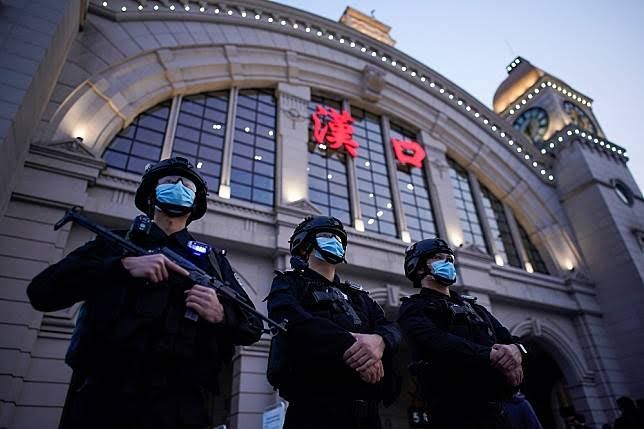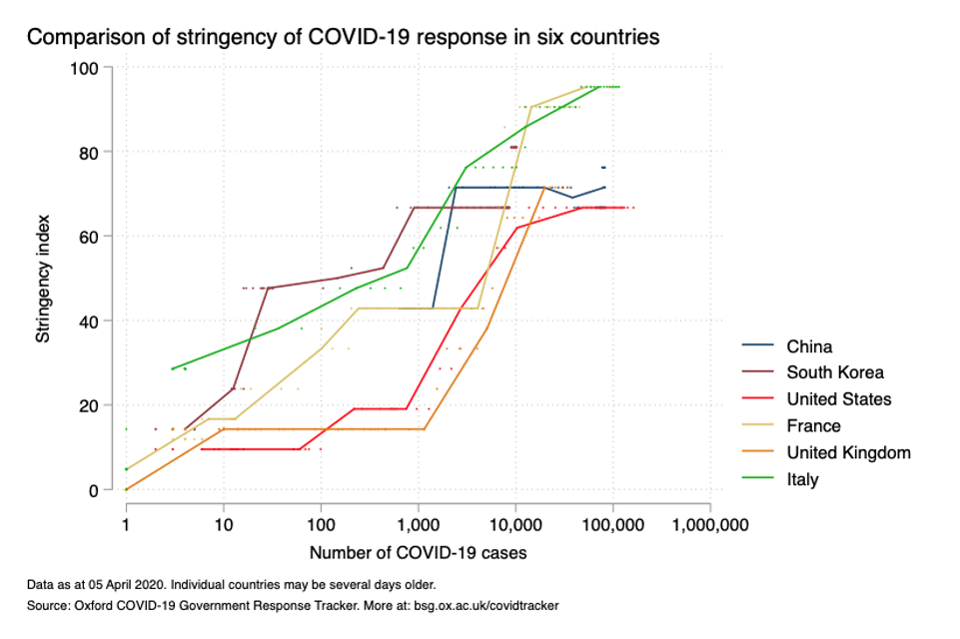
中国山東人,伯克利加州大學數學博士,哈佛大學政治經濟學博士。1989年從美國回国参加天安门民主運動。1990-2002年任「21世紀中國基金會」主席,期间推出《中华联邦宪法(草案)》,2002年4月秘密回國支援工運被捕,後以危害国家安全罪判刑五年,2007年釋放後流亡海外,同年末,在美國創立民主運動NPO「公民力量」。2010年代表刘晓波出席诺贝尔和平奖颁奖仪式。是多项国际人权奖的获得者。
Variations of Democracy and Autocracy
---Thinking under the epidemic

The Wuhan pneumonia epidemic raging around the world is the biggest challenge facing the world at present. The epidemic started in Wuhan, China and swept the whole world. It not only caused a large number of deaths and unprecedented economic losses, but also greatly affected people's lives and ways of communicating. influences political reality and human political ideals. Undoubtedly, this disaster is a far-reaching event affecting human history, and we need to follow up and think about it in time.
At present, no country has completely eliminated the epidemic, and controlling and eliminating the epidemic is still the top priority of all countries. It should be frankly admitted that among major economies, China's epidemic prevention and control is earlier than other countries, and the government's prevention and control power can be scrutinized and pervasive. In that way, the risk of the epidemic raging is reduced to a small extent, and the United States, which has a population far smaller than China, judging from the known information, both the number of confirmed cases and the number of deaths rank first in the world, making it one of the most severely affected countries. The negligence and failure of the United States to prevent and control the epidemic is an unavoidable problem.

But at the level of values, this does not mean that a democratic system with freedom and human rights as its core concepts is necessarily at an institutional disadvantage when it comes to epidemic prevention. For example, in emerging democracies such as Taiwan and South Korea, the epidemic prevention work has been very effective, especially Taiwan, which can be regarded as the world's model for epidemic prevention; while authoritarian countries such as Iran and Russia have failed to effectively prevent and control the epidemic, and even the ability of government governance is often poor. The lauded authoritarian country of Singapore, although its epidemic prevention work is remarkable, there are also obvious mistakes.
If more countries are taken into consideration, we still cannot see the logic that "freedom" will inevitably lead to the out-of-control epidemic, nor can it prove the conclusion that "dictatorship" will definitely help epidemic prevention. What's more, the CCP's opaque information and refusal to independently investigate the origin of the Wuhan virus cannot allay people's doubts. North Korea is a more extreme example. We cannot even judge the severity of the epidemic in this country. In this way, it may become a time bomb that endangers human security.
Information blockade and poor circulation are unlikely to help reduce the spread of the epidemic under any circumstances, and this is the first warning this epidemic has given to the world. Without the early blockade of the epidemic information by the Chinese government, even if the epidemic could not be stifled in the bud, the epidemic around the world would not have spread so rapidly, leaving more time for people to prepare. The communication of information is still a very important practical topic today. Even in China, the "flooding" of speech and the dissemination of information have greatly helped the prevention and control of the epidemic. For example, in the early days of the outbreak, the Chinese people's online disclosure of the real situation and calls for help, as well as international information communication, let Wuhan Hospitals have received a lot of assistance with urgently needed materials. For example, Fang Fang's epidemic diary has helped people learn more about their living conditions under the spread of the virus, and played a role in eliminating fear and scientifically preventing epidemics. Therefore, the value of freedom of speech and free dissemination of information, even under extreme epidemic conditions, is unquestionable for human beings.
Paradoxically, European and American countries, which have no obstacles to freedom of speech and information dissemination, have not performed well in this epidemic. In this regard, it is impossible for me to conduct a comprehensive analysis, but I can only discuss it based on my limited observations, hoping to shed some light on it.
First, after the outbreak of the epidemic in Wuhan, European and American countries did not pay enough attention and did not take enough pressure to require the Chinese government to disclose information. Moreover, after the United States restricted personnel exchanges between China and the United States, most European countries paid too much attention to economic cooperation with China and the feelings of the Chinese government. , the delay in taking measures to restrict the movement of people, and listening to the World Health Organization's downplaying of the epidemic has delayed the best time to prevent and control the epidemic, causing the epidemic to spread, and then spread to countries that are not fortified in Europe. Of course, even if Europe imposes entry restrictions on travelers from China from the very beginning, with the epidemic prevention attitude and level of epidemic prevention shown by most countries, the spread may be inevitable.

For example, after Wuhan locked down the city, most countries have slowed to the point of numbness in the stockpiling of medical protective equipment. The problems of excessive transfer of industrial production and the over-reliance of industrial supply chains on China have also been highlighted.
But this is not all mistakes made by European and American countries. I prefer to discuss the problems exposed by the epidemic in European and American democracies from a political level. After all, freedom of speech alone is not enough.
After the end of the Cold War, the West breathed a sigh of relief, feeling that it was no longer facing an urgent security threat, and the economy was prosperous for a long time. At the same time, under the reform and opening policy, China experienced rapid economic development, which was presented to the West. A vast market. The loss of a sense of crisis and economic prosperity are somehow related to the sense of satisfaction in Western society, which weakens the drive for social reform and fuels bureaucracy and formalism. In this epidemic, a typical manifestation is the CDC It has been sitting on the sidelines for a long time while the community spread of the epidemic in the United States with almost no effective action, which seems to be carried out within the scope of law and politics, and it is difficult to know who is responsible for it.
Even after the outbreak of the epidemic, a considerable number of politicians did not fully concentrate on epidemic prevention, or, in other words, did not seek the active intervention of professionals and social organizations in a timely manner. Behind the frequent appearances and exposures, I have considerable doubts whether politicians and the government have done their best to prevent the epidemic. The particularity of the epidemic prevention work determines that the government's role and responsibilities come first, and the government and relevant officials should accept people's higher standards of scrutiny and requirements. I think the overall performance of the European and American governments in this epidemic prevention and control is mostly unsatisfactory. Some officials even under the cover of political correctness, narrowly understand the concept of "freedom" and find excuses for the government's inaction.

Party politics is an important cornerstone of the democratic system, but the sharp struggle between the two parties in the United States seems to have diluted people's attention to the spread of the virus before March. Even after the outbreak, the bipartisan struggle still untimely diluted the epidemic prevention work and even public opinion. It is also affected, with traces of party politics, and there is not much discussion on how to improve the quality of epidemic prevention work. Too many mutual accusations and blame-shooting behaviors have even made some people wonder if the best form of a multi-party system is a two-party system? I dare not say whether the two-party system is the best party model in the United States, but such thinking has penetrated into the core question of American politics, that is, what kind of self-confidence should the "system confidence" of democratic values be? Fortunately, this kind of thinking is not "arrogant" in the United States.
Throughout history, prophetic reforms are only a few, and most reforms are driven by pressure or crisis. People need to constantly examine even the most accustomed concepts. Can we think that the concepts of "freedom, democracy, and the rule of law" can be done once and for all? to solve the problem? My answer is no. The history of the United States shows that reforms in many fields are the result of crises and even disasters. Even the liberation of black slaves in the American Civil War, the establishment of the welfare system, and the declaration of war against Hitler after stepping out of isolationism are all products of crises. Reforms after every crisis often result in a better world. So, what reason is there to think that the crisis caused by this epidemic cannot lead to reforms in the United States? What reason does the United States have for not seriously reflecting on it and learning its lessons?
As a Chinese, I am in the United States, and I don't need to worry or fear to criticize the U.S. government's mistakes in epidemic prevention. The history of the United States has proven countless times that this is the guarantee of political reform in the United States. We still have reason to believe that individual liberty is the most fundamental force driving political reform. You can be dissatisfied, angry, act, and even make unrealistic demands on the government.
Thinking and criticism are prerequisites for improvement. Above politics is common sense, and common sense exists in the hearts of most people.
The epidemic may cause globalization to ebb for a period of time, and global democratization may encounter more difficulties. But will democracy lose its appeal? With economic development and the resulting popularization of education, the answer to this question is clear. No one person or class can monopolize knowledge and information, so democracy is an irreversible historical trend. I can't imagine how many people would choose autocracy as their institutional model in society, even if the high efficiency of autocracy in some cases brings some sense of security to members of society?
The question is how do we better understand and build democratic institutions. For autocrats, the biggest threat is not from the condemnation of public opinion under the democratic system, but the advantage of the democratic system that is more suitable for human life. Democracy and freedom by no means mean inefficiency and irresponsibility, let alone stupidity. And incompetence can be praised.
People living under a democratic system should realize that democratic values are not abstract concepts, not capital to show off, but to form mechanisms that allow the government to better serve the public, so that citizens can enjoy the right to participate in politics and assume social responsibilities .
But in any case, democracy frees critical voices from taking risks, even if banning criticism seems to magnify its “institutional advantage” on the surface, as happened in China. Although China's epidemic prevention measures in the mid-to-late period have achieved epidemic prevention results (although the final result cannot be predicted now), the strict control of public opinion has covered up the mistakes of epidemic prevention work (the epidemic has even become an excuse to incite hatred and suppress speech), such as People's doubts about the origin of the virus cannot be eliminated. Information control has made Wuhan the first city in the world to have an out-of-control epidemic. The one-size-fits-all home quarantine has caused a lot of unnecessary loss of life and property. More importantly, you can only praise, only can praise...
No matter what country you are in, no matter the East or the West, evasion of government mistakes or even cheap praise is a crime against history!
The impact of the epidemic on the world is so great that we cannot predict a series of chain reactions, and we will not be able to return to the past for a long time. Countries that are deeply affected by the epidemic will undergo some changes, big and small, no matter what direction or method they take. Such changes may bring about valuable reforms and even revolutions in many places, whether in authoritarian countries. Still democracies, people will have to think and discuss more, how can political reform not only improve the ability to respond to public health events, but on a larger scale, people can see that change makes people safer and happier life. And in this difficult process, should we trust an authoritarian emperor, or an independent-thinking, real-life citizen? I still choose the latter, although it is not easy and requires a higher quality of thinking and action. If we are content with a low level of democracy, even conceited, rather than committed to change, it is not surprising that authoritarian forces take advantage. Hope to have the opportunity to discuss more about this.
May 1, 2020 in Washington
Like my work?
Don't forget to support or like, so I know you are with me..
Comment…